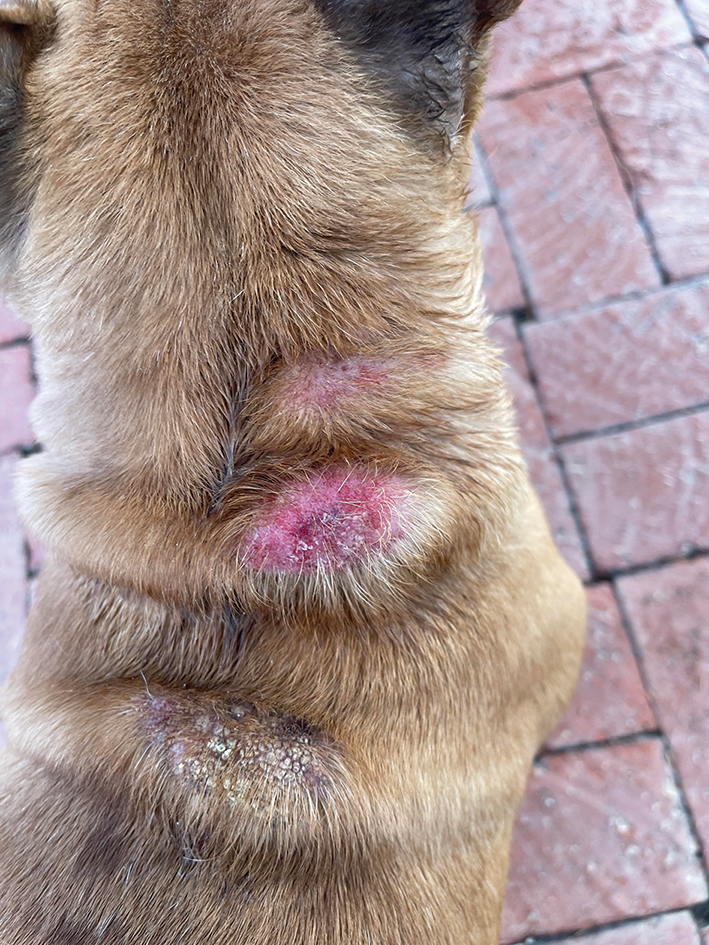By Kellie Tickner, Orchard Hills Veterinary Hospital Administrator
Ringworm, the contradiction that instils dread in pet owners, is not a product of worms as its name suggests, but rather a fungal infection that can wreak havoc on both pets and humans alike. Scientifically termed dermatophytosis, this fungal menace presents as circular lesions on the skin, heralding discomfort and potential complications for our furry companions. Moreover, its zoonotic nature underscores the need for proactive measures to safeguard both animal and human health.
Transmission of ringworm is a multifaceted affair, with sources ranging from soil-dwelling fungi to infected individuals, including our beloved pets. Unlike many infections, ringworm boldly crosses species barriers, lurking on hair follicles and skin cells, poised to strike the unsuspecting. Vigilance is paramount; avoiding skin-to-skin contact with infected individuals or animals and steering clear of contaminated items such as bedding and towels can help stem its spread.
Diagnosing ringworm requires keen observation and veterinary knowledge. Circular patterns of hair loss, coupled with redness and scaling, serve as telltale signs of the fungal intruder on your pets. Prompt veterinary evaluation, including microscopic examinations and potentially fungal cultures, is important for accurate diagnosis and tailored treatment plans.
Treatment of ringworm needs a comprehensive approach. Antifungal medications, whether administered orally or topically, form the cornerstone of therapy, working to eradicate the fungal menace. Complementary measures, such as medicated shampoos, aid in reducing fungal load and alleviating skin discomfort. Regular veterinary check-ups are recommended to monitor progress and adjust treatment regimens as needed.
Preventing ringworm’s spread is imperative, given its tendency to afflict both pets and humans. While typically benign in healthy individuals, ringworm poses a risk to people who have weakened immune systems and may have problems fighting off a ringworm infection. Practicing good hygiene, including diligent handwashing post-animal contact and routine cleaning of pet living areas, is a must to get the infection under control. Moreover, optimising environmental conditions, such as ventilation and humidity levels, can deter fungal spread.
Ringworm’s threat extends beyond mere nuisance, underscoring the importance of awareness and proactive intervention. Educating pet owners about the signs of infection and fostering a culture of preventive care can lessen its impact.
The team at Orchard Hills Veterinary Hospital stands ready to assist, providing expert guidance and compassionate care to pets and their owners alike. Phone us on (02) 4736 2027 for assistance.






